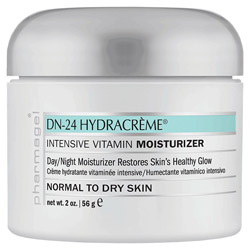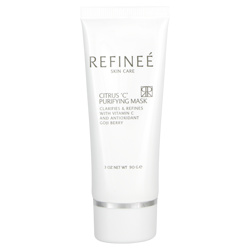Ingredient: Vitamin C
This is where vitamin C comes in. While there are many ingredients out there that can help to boost the collagen production in your body, vitamin C has been scientifically proven to be extremely effective at this, which is why it is such a popular anti-aging ingredient.
With the sun's UV rays responsible for up to 90% of facial wrinkles, as well as sun spots, skin cancer, and so much more, UV damage is definitely something that you want to avoid as much as possible. Of course, some UV exposure is inevitable, and, when in small amounts, your body can usually cope with this, largely because of the vitamin C contained in your skin. How?
Well, when UV rays hit your skin, free radicals are formed. Free radicals are atoms that are missing an electron, and in order to "fix" themselves, they end up attacking nearby cells to steal their electrons. This then causes damage to the attacked cells, which then attack more cells in order to try to heal themselves. This constant cycle ends up causing DNA damage within your skin cells, which cannot be fixed. Vitamin C is an antioxidant, meaning that it targets these free radicals and provides them with the electron that they are missing, stopping them from attacking surrounding cells, and therefore preventing the cycle of damage from continuing on.
What else does vitamin C do?
It speeds up skin healing by lowering the inflammation experienced at the site of the wound, while also limiting free radical activity, in the same way that it does when it comes to UV protection. The way in which vitamin C promotes collagen synthesis is also important in wound healing, as extra collagen will be needed at the wound site.
It evens out skin tone. An uneven skin tone is usually caused by your body overproducing melanin, which is the pigment that gives your skin its color. When this happens, your skin will develop darker spots in certain areas, which is known as hyperpigmentation. Vitamin C works by disrupting the over-production of melanin, preventing this excess pigment from showing up in your skin. This then helps to lighten up any dark areas, evening out your skin tone.
There are quite a few different forms of vitamin C out there, with each one varying when it comes to how they actually work.
The most studied and most available is ascorbic acid. It is the most bio-available form of vitamin C, meaning that your body and skin can use it in the state that it is in. With the other forms of vitamin C, the cells in your body will need to first convert the vitamin C to ascorbic acid before it can be utilized.
Vitamin C is an extremely vulnerable ingredient, and is hugely affected by both light and air. This can make it difficult when it comes to formulating skin care products containing vitamin C, as it is hard to ensure that the vitamin C within the product is stable. To ensure that light does not degrade the vitamin C in a product, the packaging needs to be completely opaque, as this will block any light from penetrating into the formula. A container that is air-restrictive, such as one with a pump top, is better, as these prevent oxygen from coming into contact with the vitamin C.

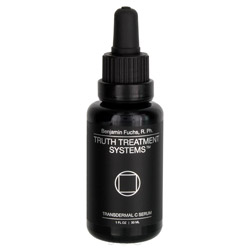
 write a review
write a review
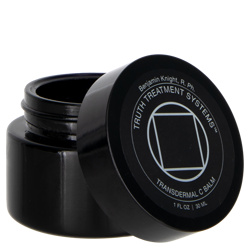
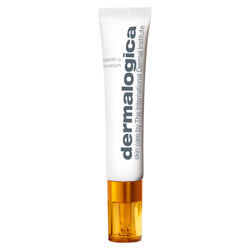
 write a review
write a review
